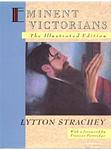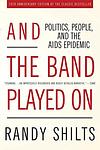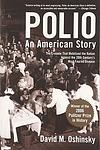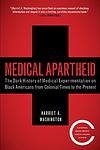The Greatest "History, Medicine" Books of All Time
Click to learn how this list is calculated.
This list represents a comprehensive and trusted collection of the greatest books. Developed through a specialized algorithm, it brings together 300 'best of' book lists to form a definitive guide to the world's most acclaimed books. For those interested in how these books are chosen, additional details can be found on the rankings page.
Genres
The category of "History" in books refers to the study and interpretation of past events, societies, and cultures. It encompasses a wide range of topics, including political, social, economic, and cultural developments, as well as the lives of individuals and groups who have shaped the course of history. History books can be written from various perspectives and may focus on specific time periods, regions, or themes. They aim to provide readers with a deeper understanding of the past and its impact on the present.
The "Medicine" category of books encompasses a wide range of topics related to healthcare, including medical research, clinical practice, pharmacology, and public health. These books may cover topics such as disease prevention, diagnosis, treatment, and management, as well as the social, ethical, and political issues surrounding healthcare. The category includes both academic and popular works, and is intended for healthcare professionals, students, and anyone interested in learning more about medicine and healthcare.
Countries
Date Range
Reading Statistics
Click the button below to see how many of these books you've read!
Download
If you're interested in downloading this list as a CSV file for use in a spreadsheet application, you can easily do so by clicking the button below. Please note that to ensure a manageable file size and faster download, the CSV will include details for only the first 500 books.
Download-
1. Eminent Victorians by Lytton Strachey
"Eminent Victorians" is a biographical work that profiles four influential figures from the Victorian era. The book provides an in-depth look into the lives of Cardinal Manning, Florence Nightingale, Thomas Arnold, and General Gordon, exploring their respective contributions to British society during the 19th century. Through these portraits, the book offers a critical and often satirical analysis of Victorian values, institutions, and moral attitudes, challenging the idealized narrative of the era.
-
2. And the Band Played On by Randy Shilts
This book is a comprehensive chronicle of the emergence of the AIDS epidemic in the United States in the 1980s. It explores how the disease was initially ignored by many health professionals and politicians, leading to its spread and the deaths of thousands of people. The book also examines the impact of the disease on the gay community and the role of various institutions, including the medical community, the media, and the government, in responding to the crisis. It's a powerful critique of the indifference and negligence that allowed the disease to become a global pandemic.
-
3. The Immortal Life of Henrietta Lacks by Rebecca Skloot
The book tells the story of Henrietta Lacks, a poor African American tobacco farmer whose cells, taken without her knowledge in 1951, became one of the most important tools in medicine, vital for developing the polio vaccine, cloning, gene mapping, and more. Henrietta's cells have been bought and sold by the billions, yet she remains virtually unknown, and her family can't afford health insurance. The book explores the collision between ethics, race, and medicine; of scientific discovery and faith healing; and of a daughter consumed with questions about the mother she never knew.
-
4. Love in the Western World by Denis de Rougemont
The book is an in-depth exploration of the concept of love as it has evolved in Western society, tracing its development from the myth of Tristan and Iseult to modern times. The author argues that the idea of passionate, romantic love that is prevalent in the West is fundamentally a form of destructive passion, often leading to pain and tragedy. The book also delves into the socio-cultural aspects of love, examining how societal norms and expectations shape our understanding and experience of love.
-
5. The Social Transformation of American Medicine by Paul Starr
"The Social Transformation of American Medicine" is a comprehensive history of the evolution of healthcare in the United States, examining the rise of the medical profession, the impact of technological advancements, and the development of medical institutions. It explores the dynamics between medical professionals and patients, the influence of social, economic, and political factors on healthcare, and the ongoing struggle for a national health policy. The book also looks at the power dynamics within the medical field and the role of medical authority in society.
-
6. Polio: An American Story by David M. Oshinsky
This book provides a comprehensive history of the polio epidemic in America, highlighting the nationwide fear and panic it caused, and the subsequent race to find a cure. It chronicles the journey of scientific discovery, from the early days of the disease, through the development of the Salk and Sabin vaccines, to the eventual eradication of polio. The book also explores the role of politics, philanthropy, and public relations in the fight against polio, and the impact this had on modern medicine and society.
-
7. Medical Apartheid by Harriet A. Washington
This book is a comprehensive history of medical experimentation on African Americans from the era of slavery to the present day. It investigates the racial disparities in healthcare and delves into the dark history of unethical and often deadly experiments conducted on black people in the United States. The author explores the roots of these practices, their implications, and the ongoing struggle for racial equality in the healthcare system.
-
8. Booker T. Washington: The Wizard of Tuskegee, 1901–1915 by Louis R. Harlan
This book delves into the life and influence of Booker T. Washington during his time as the head of Tuskegee Institute from 1901 to 1915. The narrative explores Washington's political and social strategies, as well as his controversial policies, as he navigated the complexities of post-Reconstruction America. It also examines his relationships with key figures of the era, his efforts to promote African American education and economic self-reliance, and his enduring legacy in the fight for civil rights.
Reading Statistics
Click the button below to see how many of these books you've read!
Download
If you're interested in downloading this list as a CSV file for use in a spreadsheet application, you can easily do so by clicking the button below. Please note that to ensure a manageable file size and faster download, the CSV will include details for only the first 500 books.
Download






